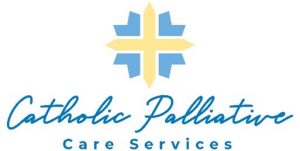Palliative Care Benefits
Palliative care adds a valuable layer of support for anyone suffering from chronic, debilitating or life-threatening illness. Your care team includes Palliative Care Board Certified Physicians, Advanced Practice Registered Nurses; Licensed Clinical Social Workers, Chaplains, Music Therapists and other specialists all collaborating together to:
- Relieve your symptoms of suffering, including pain, shortness of breath, nausea, loss of appetite, constipation, difficulty sleeping and many others.
- Provide information and support to help you better understand your illness, your care options and set realistic goals for care.
- Coordinate with your physicians and specialists to optimize your care.
- Support social, ethical, and spiritual concerns and decisions relating to your illness.
- Help you manage the stress of a serious illness.
- Assist with discharge, long-term care planning and advance care planning.
Our Care Comes To You
We can provide palliative care on an inpatient or outpatient basis. We can travel to South Florida hospitals, to your home or to any of our CHS Skilled Nursing Centers.
Call us at 305-351-7086, fax us at 305-824-0665, or contact us by email.
Email Us
Palliative vs. Hospice: What’s The Difference?
People often confuse palliative and hospice services, which is understandable. Both have a similar focus: pain and symptom relief, plus specialized support. But there are big differences.
| PALLIATIVE CARE | HOSPICE CARE | |
|---|---|---|
| Care focus | Relieving symptoms, stress of serious, life-limiting illness. | Relieving symptoms and stress for patients facing terminal illness. |
| Illness stage | Any stage of serious or chronic illness: not necessarily end-of-life. | End-of-life prognosis — 6 months or less — based upon their physician’s estimate. |
| Curative options | Patients can get palliative care while also pursuing treatment or therapy to cure or delay disease. | Patients cannot be on hospice if they are pursuing curative treatments or therapy for their illness. |
| Cost | Costs are self-paid or paid by private insurance. | Cost is usually 100% paid by Medicare, Medicaid or private insurance. |
| Eligibility | Care can start at any time or stage, terminal or not, at patient or doctor’s discretion. | Certification by two physicians that a patient has less than 6 months if disease follows the usual course. |
| Care location | Can be on inpatient or outpatient basis. Care can be in a hospital, skilled nursing facility or at home. | Care can be provided at a patient’s home, long-term care apt. or an inpatient center within a hospital. |
Helpful Palliative Resources
Whether you’re a patient or caregiver, it’s normal to feel overwhelmed, scared and exhausted. Reach out to us: our warm, caring team answers your call 24/7. We’ve also put together resources that have helped many families facing similar challenges to make more confident care decisions
Caring Info
Helpful advice from the National Hospice and Palliative Care Organization on advance directives, palliative care, hospice, caregiving and more.
Florida Council On Aging
Serving Florida’ elders through education, information-sharing and advocacy. Get immediate help via their Elder Hotline, accessible to anyone within Florida, as well as other resources.
Area Agency On Aging — Broward County
Explore extensive programs and services: food assistance, health/wellness programs, Senior Centers/Day Care, transportation services and more.
SHINE (Serving Health Insurance Needs of Elders)
Health insurance information and free, unbiased, and confidential counseling assistance to Medicare beneficiaries, their families, and caregivers.
Dept of Elder Affairs
This Florida DEA Quick Resources Guide is packed with tips, contact information and links to programs, resources and services for seniors and caregivers.
The Conversation Project
Make those difficult conversations easier with free tools, guidance, and resources to begin talking with those who matter most about your wishes and theirs.
Palliative Care FAQs

Hospice provides palliative care, which is a specialized medical care for people with serious illnesses. Palliative care focuses on providing patients with relief from the symptoms and stress of a serious illness. The goal is to improve quality of life for both the patient and the family.
Palliative care can be received by patients at any time, at any stage of illness whether it be terminal or not. This specialized care fills a gap for patients who want and need comfort at any stage of any disease, whether terminal or chronic. Since there are no time limits on when you can receive palliative care, in a palliative care program, there is no expectation that life-prolonging therapies will be avoided.
Catholic Health Services offers Skilled Nursing and Rehabilitation services, which include palliative care for those with short-term or long-term care needs.
How Can We Help? Contact Us Now.


